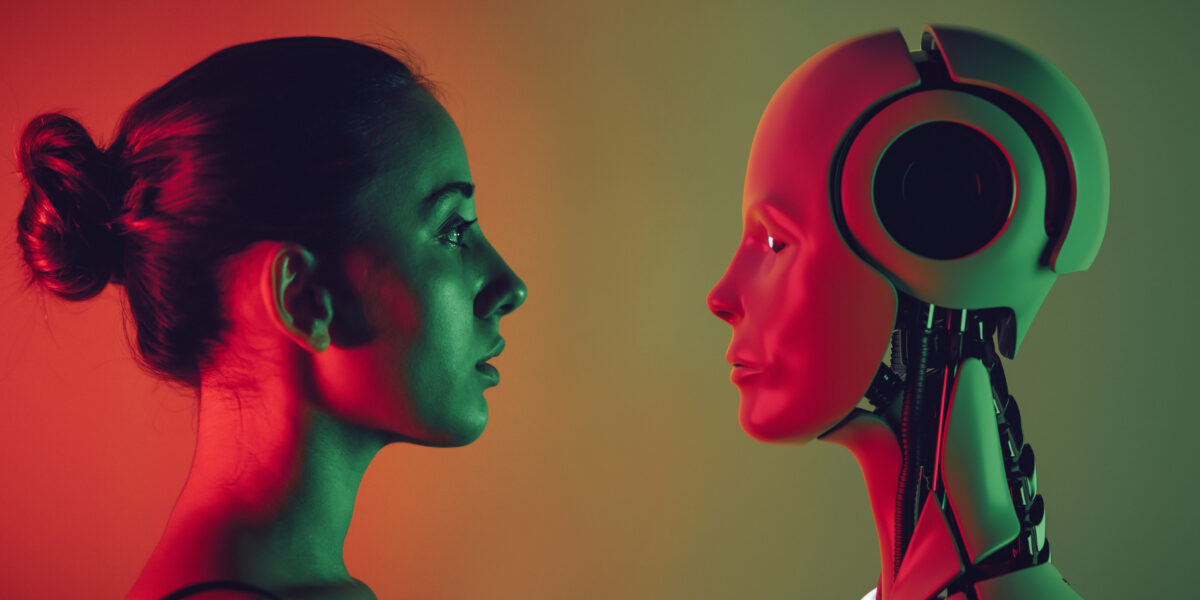AI: Already Well-Known in Cinema

Do you ever find yourself wondering: Are these still my ideas? Or are they being created by digital machines? And could this possibly be artificial intelligence? One thing is certain: AI is one of the most exciting topics for the future. Yet, few people can currently envision how “intelligent” behavior will be automated and self-learning machines will take over a multitude of our daily tasks. But for cinema, this topic is practically old news: Artificial intelligence has been present in movies for decades.
Formerly Science Fiction, Now Normalcy
“Much of what is anticipated in films is technologically evolving in such a way,” confirmed Julian Nida-Rümelin, physicist and professor of philosophy in Munich, as well as former German Minister of State for Culture, in a conversation with the “Süddeutsche Zeitung” last year. Indeed: Many astonishing technologies from earlier science fiction films are now almost standard. For instance, Steven Spielberg envisioned in 2001’s “A.I. Artificial Intelligence” a scenario where the emotional deficits of humans are compensated by corresponding robots – once an absurd notion, now in times of ever-more empathetic chatbots, an almost comforting thought…
The Moviepilot portal lists over 60 well-known films where artificial intelligence plays a significant role. At the top is the science fiction classic “Blade Runner” from 1982, followed by “The Matrix” (1999), “Terminator 2: Judgment Day” (1991), “2001: A Space Odyssey” (1968), and the film “Her” (2013), in which a writer falls in love with the female voice of his computer operating system. Films like “Star Trek: The Motion Picture” (1979), “Short Circuit” (1986), “The Thirteenth Floor” (1999), “Demon Seed” (1977), and of course “Transcendence” (2014) have shown more or less realistic scenarios of artificial intelligence from today’s perspective.
Films Explain Artificial Intelligence to Students
By the way: As movies are increasingly being used for educational purposes, they also offer an opportunity to explain the complex topic of artificial intelligence. For example, Vision Kino, a non-profit organization promoting film and media literacy among children and adolescents, utilizes films in the Science Year 2019 to introduce children and teenagers to the topic. The films are intended to give young people “food for thought and topics for discussion, and to acquaint them with some thinking machines that remain unforgettable in film history,” according to Vision Kino’s reasoning.
As part of the nationwide School Cinema Weeks by Vision Kino, with over 700 events, school classes have the choice between five feature, animated, and documentary films where artificial intelligence plays a crucial role. The films include “Wall-E,” “The Imitation Game,” the biopic about Alan Turing, the AI thriller “Ex Machina,” the winner of the Max Ophüls Documentary Film Prize “Hi, A.I.,” and of course, “Blade Runner,” whose story is set in the year 2019.